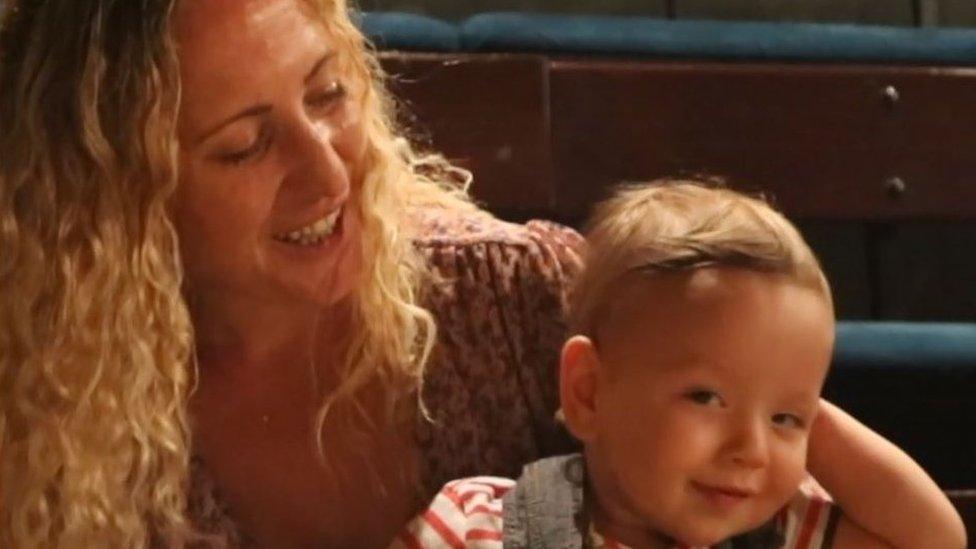Prescribed Bristol comedy course could help trauma recovery
- Published
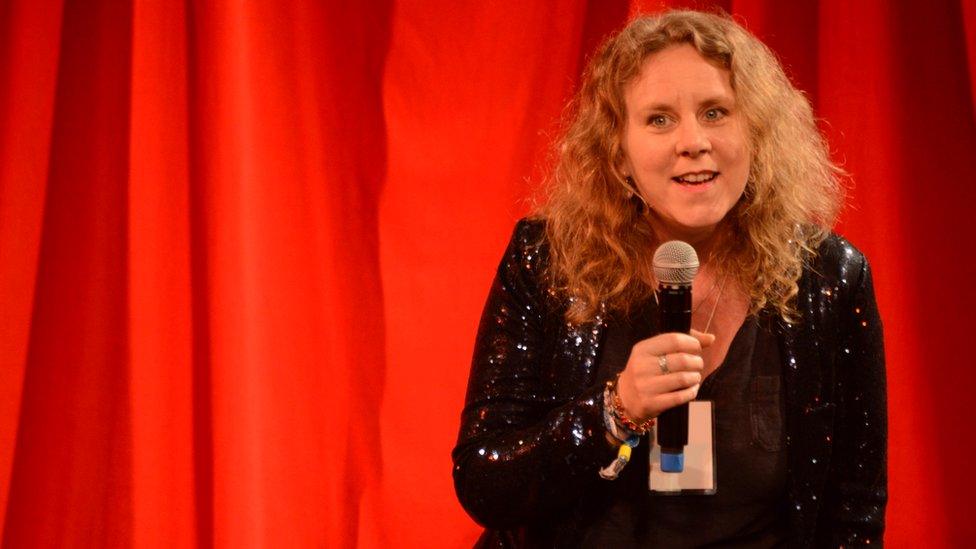
Ms Belcher said she hopes the prescribed comedy sessions will become a permanent wellbeing option
A prescribed comedy course could become a new way to help people recover from trauma.
Comedian in residence at Bristol University, Angie Belcher, has worked with health advisors and psychology theories to develop the sessions.
She said all comedy comes from "trauma not the happy bits" and gives people a new perspective on experiences.
Ms Belcher said: "Comedy is a force for good" and people do not realise how much it "can change people's lives".
Professional comedians Charmian Hughes and Jack Campbell will help to deliver the sessions.
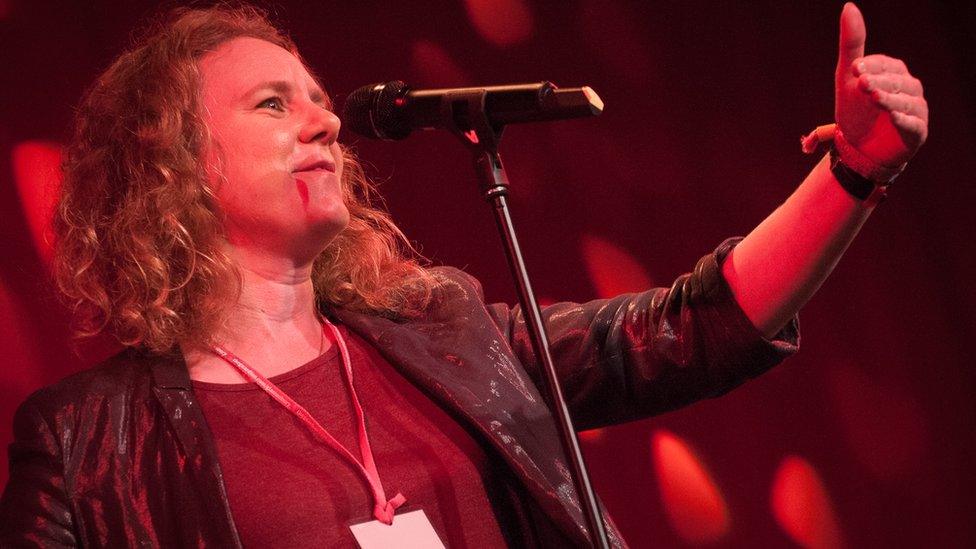
Ms Belcher is currently working as a stand-up comedy tutor at Circomedia circus school in Bristol
Participants will take part in free sessions through the Bristol Wellspring Settlement Social Prescribing Team.
"We're all naturally comedians," she said.
"When I work with young people there's a lot of people experiencing gender dysmorphia, people who have recently come out, issues with family, class and race.
"We explore those subjects.
"At the end, people seem six inches taller."
Ms Belcher said she has a masters in psychology which is why she is so interested combining the arts with psychology and looking at "an inner sense of self".
'The funny side'
Bristol student Kiah Bailey said comedy has helped her process and navigate her anxiety, depression and difficult experiences she has had in her life.
"It's that whole, if you don't laugh about it then you'll cry sort of thing," she said.
"Trauma plus time equals comedy, so I can use my experiences. Now I have found the funny side, it makes it easier to deal with."
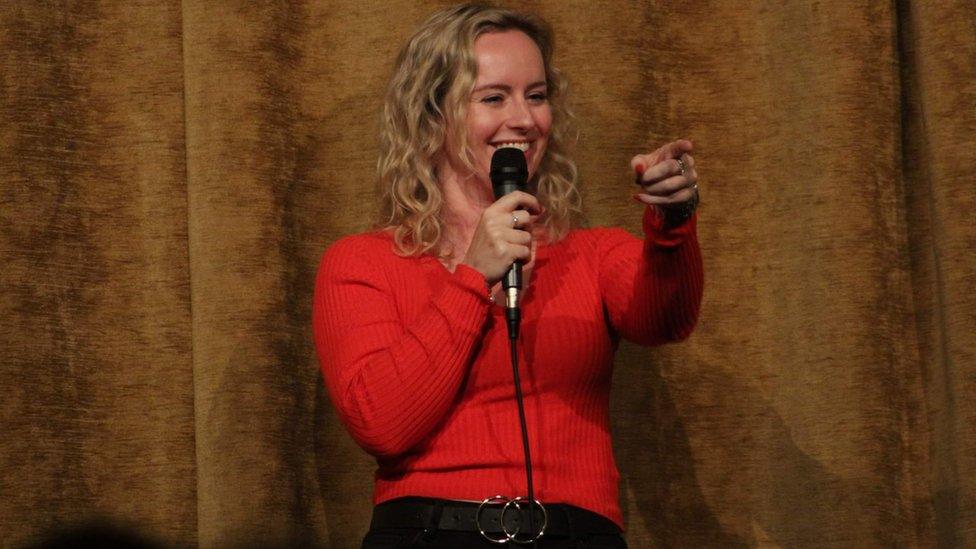
Ms Johns said using comedy to help people's wellbeing is a great achievement and a "step in the right direction"
Bristol TV production worker Dani Johns did a few one-on-one coaching sessions with Ms Belcher to boost her confidence.
"It made me a bigger, brighter version of myself," she said.
"Laughter is the best medicine. I've experienced grief and lost people very close to me and often comedians talk about losing people in their performances.
"You're addressing something huge in your life but with a positive outlook on it."
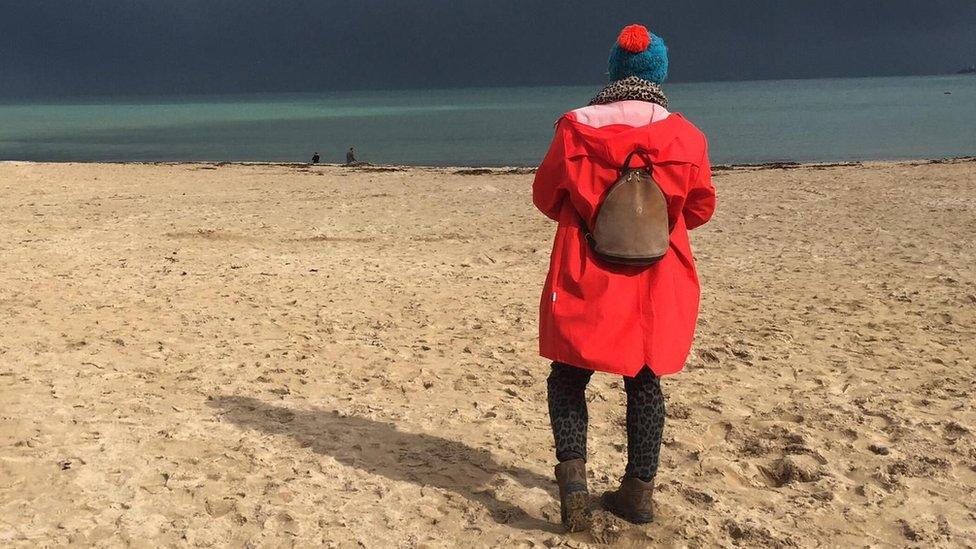
Ms Hills said comedy is "the best remedy"
Bristol actor and poet Jane Hills did the course to help her cope when she "wasn't in a very good place".
"It made me feel that I wasn't alone in my situation."
She said at the time she was writing "very morose poetry".
"They do say laughter is the best tonic.
"The course will preprogramme your brain to think differently and find humour in the situation you're in," she added.
GPs will be able to socially prescribe the pilot course from January 2022.

Follow BBC West on Facebook, external, Twitter, external and Instagram, external. Send your story ideas to: bristol@bbc.co.uk , external
Related topics
- Published10 May 2021
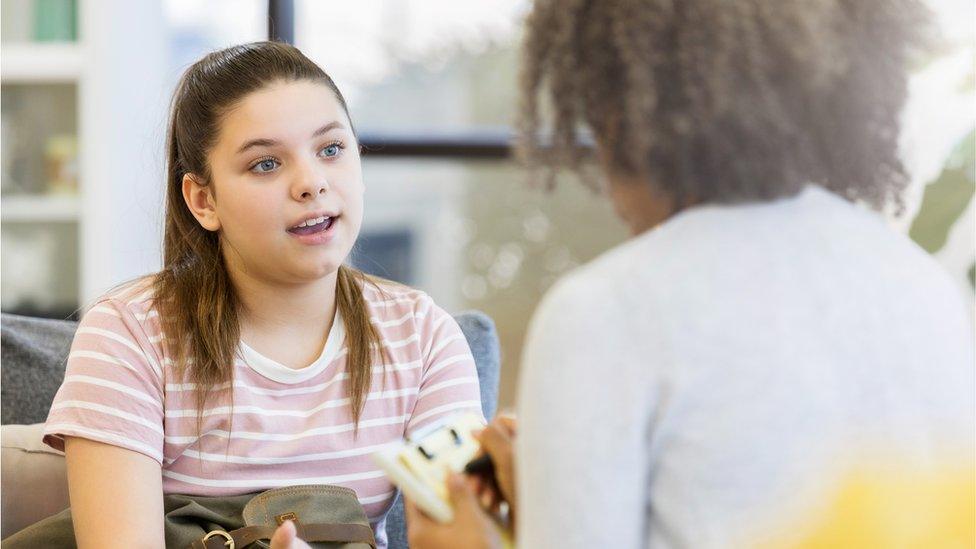
- Published22 January 2020
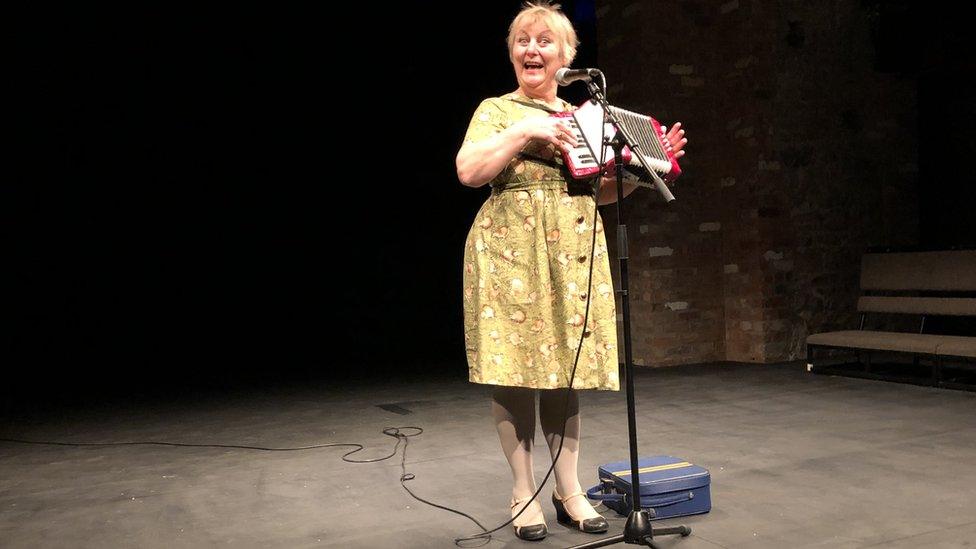
- Published11 June 2019
